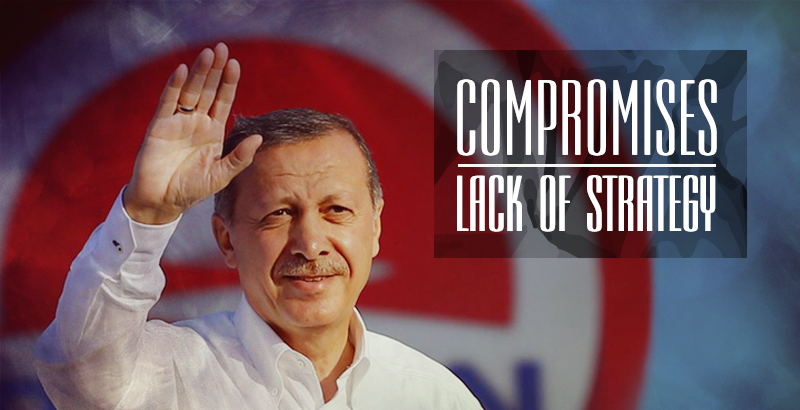
The victory clearly gave Erdogan a bit of breathing room after the last few months which were full of bad news for the ruling party. After it refused to enter into a coalition, PJD’s policies resembled pure chaos which led to a deterioration of relations with nearly all the major international players, including both Russia and United States (which is no mean feat). Erdogan clearly hoped that an escalation of the Syria crisis, the looming specter of terrorism and fighting inside of Turkey, and the flow of refugees into Europe would increase his rating. Still, none of these measures prevented even the US analysts were predicting that Erdogan’s PJD would do badly.
Therefore it’s not year entirely clear what exactly gave Erdogan this stunning victory in the form of 49% of popular vote and a clear parliamentary majority. Was it low turnout among opposition voters? Fraud? Or a mass epiphany among Turkish voters?
One can probably rule out fraud. It’s more likely that PJD entered into a whole range of behind-the-scenes compromises with various power brokers. PJD has an electoral base of about 40% of voters. It was able to increase that by attracting nationalists who lost 4% by comparison with the last election, and likewise Demirtash’s Kurdish Party of Democracy of Nations (PDN) lost 3%. The extra votes that PJD managed to win were obtained thanks to the hard-line anti-Kurd propaganda that the party engaged in, in addition to the behind the scenes maneuvering which was visible during the recent parliamentary speaker selection process.
As to the Kurds, the PJD did all it could to strip away votes from Demirtash’s party, including attempting to move voting precincts away from Kurdish regions under the pretext of keeping them safe from terrorists. When that move failed, the MIT secret service head Fidan entered into secret negotiations with various Kurdish clans in order them support PJD and not Demirtash. To be specific, the MIT approached the Kurdish Islamist segment and was able to reach a compromise with the Khuda Par Kurdish Islamist party. It is largely through such maneuvers that Erdogan was able to get his 49%.
The terror strikes inside Turkey did their work too. While the Islamic State was blamed for them, that organization has no incentive to wage a terror campaign against Turkey. Given that the IS and Turkish authorities are in close contact in spite of the terror strikes, and that the IS is still selling stolen Syrian and Turkish petroleum on the Turkish market and using Turkey as a safe operating base suggests that these were purely internal Turkish matters. Moreover, while the IS is always quick to claim credit for terror attacks, it did not do so in these cases.
Now that Erdogan has won, what will he do next? Both internal and foreign affairs are in disarray. There is no evident strategy to deal with either. US experts predict Ankara will adopt a pragmatic position of dialogue with Damascus in order to organize a “transition period.” However, it’s rather likely the US experts are yet again wrong in their estimates of Erdogan’s inner thoughts. He is an impulsive politician who does not like when his opinion and recommendations are ignored, and whose personal ambitions and sympathies often get in the way of conducting a flexible policy. His conflict with Assad is now personal and the two will never sit at the same negotiating table. At the same time Erdogan will no doubt support the idea of a “transition period” in order to freeze the situation and allow their loyal “moderate rebels” to catch their breath by depriving Russia of the ability to continue its air campaign. The prospect of a Kurdish autonomy remains a major problem, especially with Washington continuing to support the Kurds at least until Raqqa is taken. Refugees likewise remain a major problem which raises tensions among the Turks as well as the Europeans. How will Erdogan juggle all of these priorities? He does not appear to have a clear prescription for any of them. In the final account, Erdogan will be judged not by his party’s electoral performance but by his ability to deal with the issues of the day.



